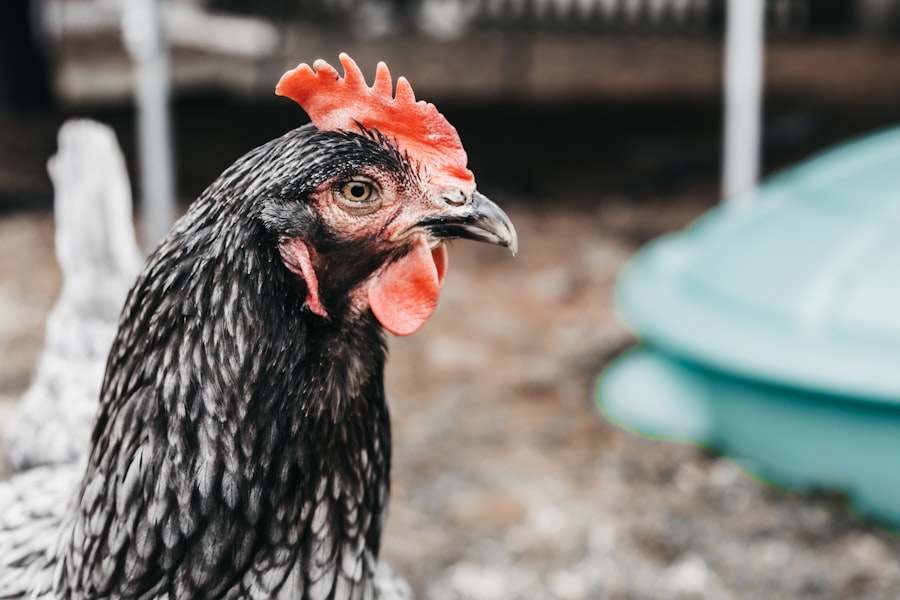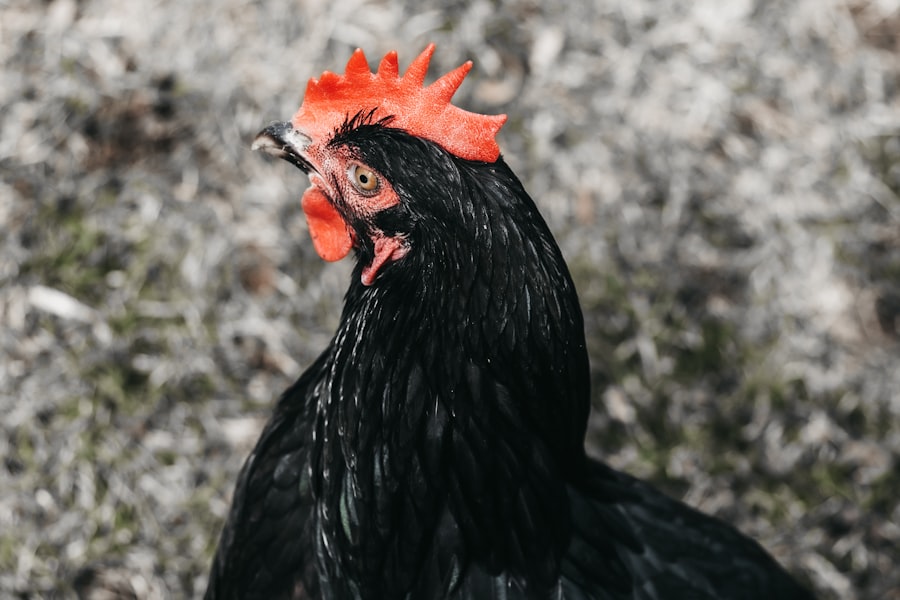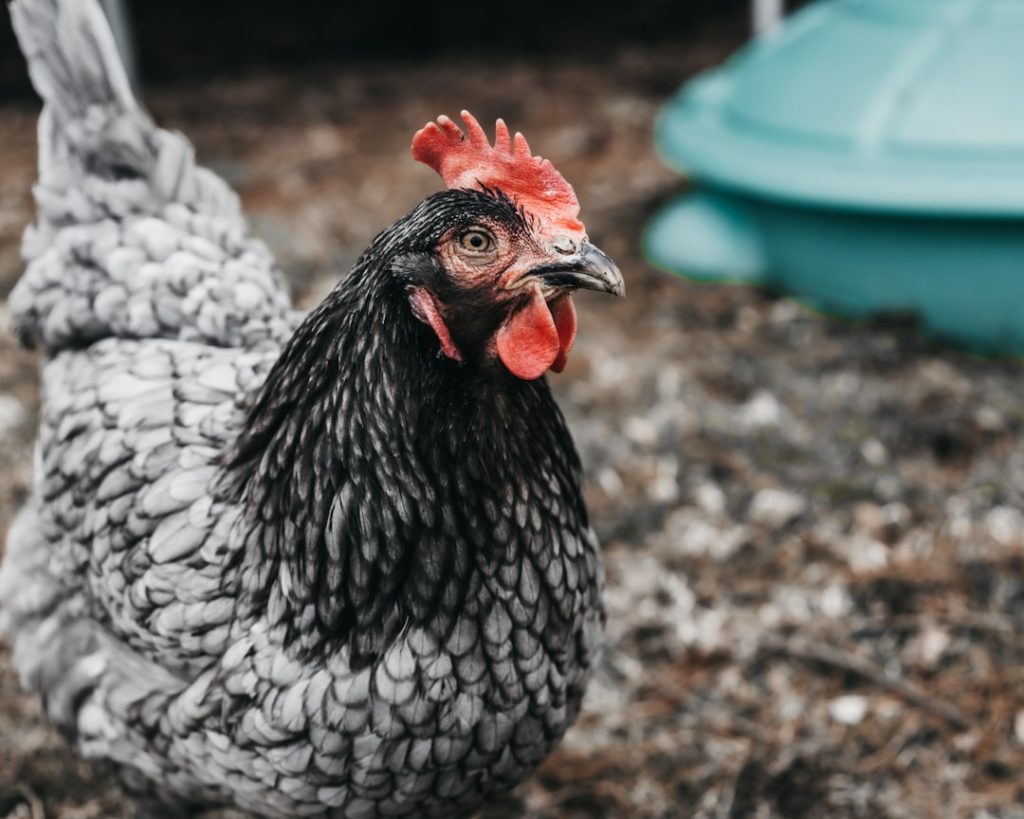Chickens are highly social creatures that thrive in flocks, exhibiting complex social structures and hierarchies. They possess natural instincts to forage, scratch the ground, and dust bathe, which are essential behaviors for their physical and mental well-being. To ensure optimal health and productivity, chickens require adequate space to engage in these activities and establish their social order.
Proper care for chickens involves providing protection from predators and extreme weather conditions. This includes secure housing and appropriate shelter from heat, cold, and precipitation. Access to clean water and a balanced diet is crucial for their health and egg production.
Understanding and meeting the needs of chickens is vital for their welfare. This includes providing sufficient space for movement and natural behaviors, maintaining a clean environment, and ensuring proper nutrition. When these requirements are met, chickens can lead healthy lives and maintain optimal productivity.
Chickens form strong social bonds within their flock, and disruptions to the group dynamics can cause stress. It’s important to introduce new birds carefully and monitor flock interactions. Providing enrichment activities, such as perches, nesting boxes, and foraging opportunities, can help keep chickens mentally stimulated and reduce negative behaviors like feather pecking.
By recognizing and accommodating the natural behaviors and social needs of chickens, caretakers can create an environment that promotes the overall well-being of their flock, leading to healthier birds and potentially increased egg production.
Table of Contents
- 1 Providing Adequate Space for Chickens
- 2 Ensuring Proper Nutrition for Chickens
- 3 Creating a Safe and Comfortable Environment for Chickens
- 4 Implementing Humane Handling and Care Practices
- 5 Addressing Health and Veterinary Care for Chickens
- 6 Integrating Chickens into Sustainable and Ethical Farming Practices
- 7 FAQs
- 7.1 What does it mean to humanely keep chickens?
- 7.2 What are the key elements of a humane chicken coop?
- 7.3 What should be included in a chicken’s diet to ensure they are kept humanely?
- 7.4 How can chickens be kept safe from predators in a humane way?
- 7.5 What are some common practices that are considered inhumane in chicken keeping?
- 7.6 How can I ensure that I am keeping chickens in a humane way?
Key Takeaways
- Chickens have specific needs for space, nutrition, and a safe environment to thrive.
- Providing adequate space for chickens is essential for their well-being and health.
- Proper nutrition for chickens includes a balanced diet of grains, protein, vitamins, and minerals.
- Creating a safe and comfortable environment for chickens involves shelter, protection from predators, and clean living conditions.
- Humane handling and care practices are important for the well-being of chickens and should be implemented in all farming practices.
Providing Adequate Space for Chickens
Indoor Space Requirements
Chickens need enough room to move around comfortably, spread their wings, and perch in their coop. A general rule of thumb is to provide at least 2-3 square feet of space per chicken.
Outdoor Space Requirements
Outdoor space is equally important, as chickens need access to fresh air, sunlight, and the opportunity to forage and explore. A good guideline is to provide at least 8-10 square feet per chicken in a run or free-range area.
Creating a Safe and Healthy Environment
In addition to space considerations, it’s crucial to provide a safe and secure environment for chickens. This includes predator-proofing the coop and run, providing adequate ventilation, and ensuring that the living area is free from drafts and moisture. Proper sanitation and cleanliness are also vital for maintaining a healthy living environment for chickens. By providing adequate space and a safe living environment, chickens can exhibit natural behaviors, stay physically healthy, and maintain a strong social structure within their flock.
Ensuring Proper Nutrition for Chickens

Proper nutrition is essential for the health and productivity of chickens. A well-balanced diet should include a combination of grains, protein, vitamins, and minerals. Chickens require a high-quality commercial feed that is specifically formulated for their age and purpose (e.g., laying hens, broilers).
In addition to feed, chickens can benefit from supplemental treats such as fruits, vegetables, and mealworms. It’s important to provide access to clean water at all times, as dehydration can quickly lead to health issues in chickens. In addition to providing a balanced diet, it’s important to monitor the body condition of chickens and adjust their feed intake accordingly.
Overfeeding can lead to obesity and health problems, while underfeeding can result in poor egg production and overall malnutrition. It’s also important to consider the impact of seasonal changes on the nutritional needs of chickens. For example, laying hens may require additional calcium during peak egg production periods.
By ensuring proper nutrition for chickens, farmers can support their overall health and well-being.
Creating a Safe and Comfortable Environment for Chickens
Creating a safe and comfortable environment for chickens is essential for their overall well-being. This includes providing adequate shelter from extreme weather conditions such as heat, cold, wind, and rain. The coop should be well-insulated and ventilated to maintain a comfortable temperature and air quality.
Additionally, it’s important to provide appropriate bedding material such as straw or wood shavings to keep the coop clean and dry. In addition to shelter, it’s important to provide comfortable roosting bars and nesting boxes for chickens. Roosting bars should be wide enough for chickens to perch comfortably and should be placed at varying heights to accommodate the natural pecking order within the flock.
Nesting boxes should be secluded and lined with clean bedding material to provide a safe and comfortable space for hens to lay eggs.
Implementing Humane Handling and Care Practices
Implementing humane handling and care practices is essential for the ethical treatment of chickens. This includes gentle handling techniques that minimize stress and fear in chickens. When handling chickens, it’s important to approach them calmly and quietly, avoiding sudden movements or loud noises that can startle them.
Additionally, it’s important to provide regular opportunities for chickens to engage in natural behaviors such as foraging, dust bathing, and socializing with their flock. It’s also important to monitor the behavior and health of chickens on a regular basis. This includes observing their eating and drinking habits, monitoring their body condition, and checking for any signs of injury or illness.
By being attentive to the needs of chickens and providing prompt care when necessary, farmers can ensure that their flock remains healthy and content.
Addressing Health and Veterinary Care for Chickens

Biosecurity Measures
Implementing biosecurity measures is essential to prevent the introduction and spread of diseases within the flock. These measures may include quarantining new birds before introducing them to the existing flock, controlling access to the farm by wild birds or rodents, and maintaining strict sanitation practices.
Veterinary Care and Preventative Measures
In addition to biosecurity measures, it’s important to establish a relationship with a veterinarian who is knowledgeable about poultry health. Regular check-ups and vaccinations can help prevent common poultry diseases such as Marek’s disease, coccidiosis, and infectious bronchitis.
Health Issue Management
It’s also important to have a plan in place for addressing any health issues that may arise within the flock, including access to appropriate medications and treatments.
Integrating Chickens into Sustainable and Ethical Farming Practices
Integrating chickens into sustainable and ethical farming practices can have numerous benefits for both the environment and the overall farm ecosystem. Chickens can play a valuable role in pest control by consuming insects and other pests that can damage crops. Their manure can also be used as a natural fertilizer for gardens and fields, reducing the need for chemical fertilizers.
In addition to their role in pest control and fertilization, chickens can contribute to sustainable farming practices through rotational grazing systems. By allowing chickens to free-range in pasture areas after crops have been harvested, farmers can improve soil health and reduce weed pressure through natural grazing behaviors. Furthermore, integrating chickens into sustainable farming practices aligns with ethical considerations by providing them with a natural environment in which they can exhibit their natural behaviors.
By allowing chickens to engage in natural behaviors such as foraging, scratching, dust bathing, and socializing with their flock, farmers can support their overall well-being while also contributing to sustainable farming practices. In conclusion, understanding the needs of chickens is essential for providing them with a safe, comfortable, and enriching living environment. By ensuring adequate space, proper nutrition, humane handling practices, veterinary care, and integration into sustainable farming practices, farmers can support the overall health and well-being of their flock while also contributing to ethical and sustainable farming practices.
If you’re looking for ideas on how to keep chickens in a humane and comfortable environment, you might want to check out this article on chicken coop interior ideas. It offers practical tips and design inspiration for creating a safe and cozy space for your feathered friends.
FAQs
What does it mean to humanely keep chickens?
Humanely keeping chickens means providing them with a safe and comfortable environment that meets their physical and behavioral needs, including access to fresh water, proper nutrition, space to move around, and protection from predators.
What are the key elements of a humane chicken coop?
A humane chicken coop should provide adequate space for the number of chickens being kept, proper ventilation, natural light, nesting boxes for laying eggs, roosting bars for perching, and protection from extreme weather conditions.
What should be included in a chicken’s diet to ensure they are kept humanely?
A chicken’s diet should include a balanced mix of grains, seeds, fruits, vegetables, and protein sources such as insects or mealworms. It’s important to provide access to fresh water at all times and avoid feeding them foods that are harmful to their health.
How can chickens be kept safe from predators in a humane way?
To keep chickens safe from predators in a humane way, it’s important to secure the chicken coop with sturdy fencing, lockable doors, and predator-proof latches. Additionally, providing a secure outdoor run and supervising free-range time can help protect chickens from predators.
What are some common practices that are considered inhumane in chicken keeping?
Common inhumane practices in chicken keeping include overcrowding, lack of access to fresh water and proper nutrition, inadequate shelter, and neglecting their physical and behavioral needs. Additionally, practices such as debeaking and forced molting are considered inhumane.
How can I ensure that I am keeping chickens in a humane way?
To ensure that you are keeping chickens in a humane way, it’s important to educate yourself about their needs and behaviors, provide them with a suitable living environment, and regularly monitor their health and well-being. Additionally, following animal welfare guidelines and seeking advice from experienced chicken keepers can help ensure humane treatment of chickens.
Meet Walter, the feathered-friend fanatic of Florida! Nestled in the sunshine state, Walter struts through life with his feathered companions, clucking his way to happiness. With a coop that’s fancier than a five-star hotel, he’s the Don Juan of the chicken world. When he’s not teaching his hens to do the cha-cha, you’ll find him in a heated debate with his prized rooster, Sir Clucks-a-Lot. Walter’s poultry passion is no yolk; he’s the sunny-side-up guy you never knew you needed in your flock of friends!







